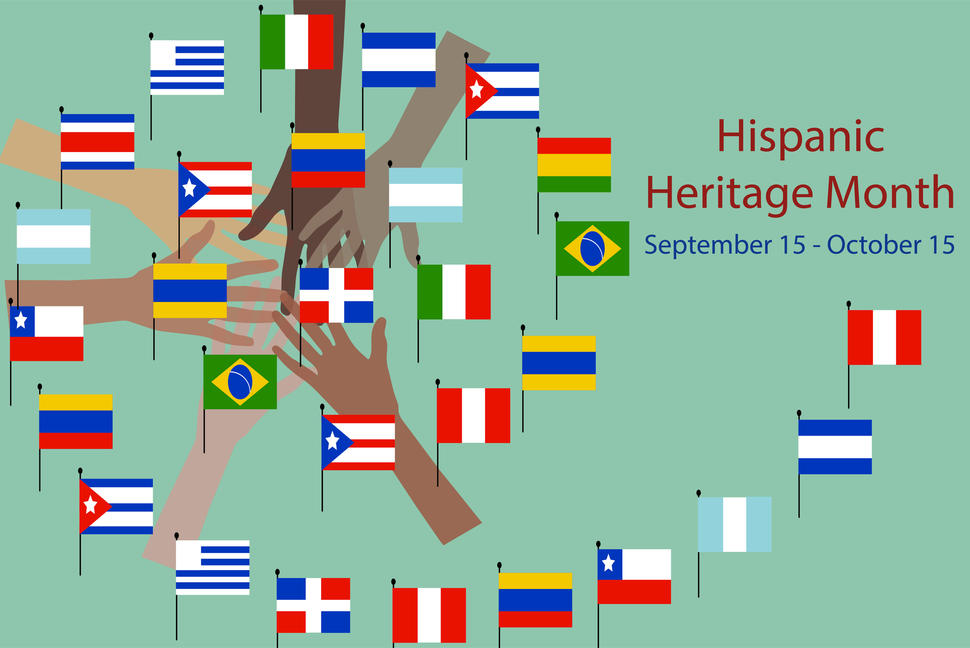Hispanic, Latino/a, Latinx, Latine: Disentangling the identities of Hispanic/Latino Americans
, by Staff from DCEG and DCCPS (see Contributing Authors below)
While the terms Hispanic and Latino/a/x/e are often used interchangeably, preferences for use vary by community and individual (Latine has emerged as a gender-neutral adjective, since the publication of the Inclusivity Minute ‘Use of Hispanic and Latinx’). According to survey data collected by Pew Research Center, individuals often prefer to describe themselves by country or place of origin1. Moreover, these umbrella terms encompass a heterogeneous population representing over 20 countries of origin each with individual and mixed cultural background and language1,2.
From 2010 to 2020, Hispanic/Latino/a/x/e individuals accounted for 52 percent of the total population growth in the U.S.3; studies in this group will be important to understand the unique potential health problems and disparities that may impact these communities. However, many current research studies aggregate Hispanic/Latino/a/x/e people into one group.
Disaggregated data are imperative to fully understand the cancer burden and health disparities among these populations and to inform targeted cancer prevention and control efforts4. Hispanic or Latino/a/x/e populations are diverse and vary significantly by factors that may affect cancer risk and outcomes: genetics, culture, lifestyle/behavior, geographic region, and socioeconomic status. Often, cancer surveillance data are available in aggregate only, which could mask this heterogeneity. For example, among Hispanic men, most common cancer mortality sites after lung cancer were found to be different based on country or place of origin (e.g., Mexico, Cuba, Puerto Rico, countries in Central/South America)4. For both men and women, number of years of lives lost also differed by country of origin.
Research Recommendations
If you would like to provide anonymous feedback or suggestions, please use this one-question survey.
- Rigorously collect data on nationality/country of origin to examine outcomes stratified by disaggregated background (e.g., Mexican, Puerto Rican, Cuban, Dominican).
- Learn about preferred terms to describe this large and diverse population. The American Medical Association has compiled a list of terms5 to consider, or consult the communities in which you are conducting research.
- Translate questionnaires into multiple languages (e.g., Portuguese, Quechua) in addition to English and Spanish
Further Resources for Continued Reading and Learning
- Learn more about use of the term ‘Latinx’ and the difference between ‘Hispanic’ and ‘Latino’
- Discover key facts about U.S. Latinos in honor of National Hispanic Heritage Month
- Understand how Hispanic identities shift across generations
Contributing Authors
Jessica M. Madrigal (OEEB, DCEG), Margarita Correa-Mendez (Implementation Science Team, DCCPS), Joshua D. Arias (OEEB, DCEG), and Loretto J. Carvajal (IIB, DCEG)
References
- Who is Hispanic? Pew Research Center. Published September 15, 2022.
- The Many Dimensions of Hispanic Racial Identity. Pew Research Center. Published June 11, 2015.
- Hispanics have accounted for more than half of total U.S. population growth since 2010. Pew Research Center. Published July 10, 2020.
- Zamora SM, Pinheiro PS, Gomez SL, Hastings KG, Palaniappan LP, Hu J, Thompson CA. Disaggregating Hispanic American Cancer Mortality Burden by Detailed Ethnicity. Cancer Epidemiol Biomarkers Prev 2019 Aug. DOI: 10.1158/1055-9965.EPI-18-0872. Epub 2019 May 30. PMCID: PMC6771432.
- Advancing Health Equity: A Guide to Language, Narrative and Concepts (pdf, 516KB). American Medical Association and Association of American Medical Colleges
